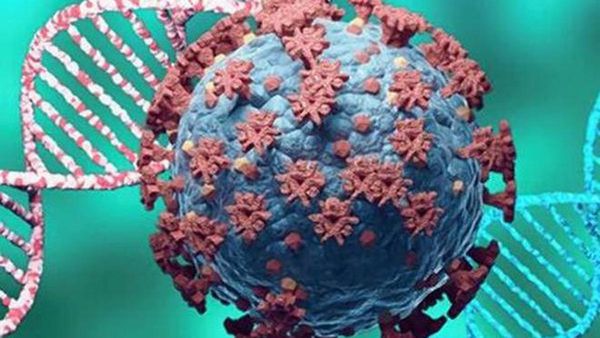
One of the UK’s leading psychiatrists is calling for an overhaul of the diagnosis and treatment of psychotic disorders following evidence that a small but significant fraction of cases could be triggered by an autoimmune response.
Speaking before the relaunch of a groundbreaking trial in which psychosis patients are being treated with medicines normally reserved for autoimmune conditions such as arthritis and lupus, Prof Belinda Lennox, the head of psychiatry at the University of Oxford, said she hoped the work would pave the way for new, more targeted approaches to treating conditions such as schizophrenia. This could include some patients being given immunotherapies to treat psychotic symptoms.
“It would be the first time in the whole of psychiatry that we have a diagnosis and a cause for why people develop severe mental illness,” she said.
The approach will not be suitable for most patients with psychosis – and Lennox is not challenging the view that mental illnesses can be rooted in traumatic life experiences or other causes.
“A problem with the whole of psychiatry is that our diagnoses aren’t fit for purpose,” she said. “Psychosis is a group of disorders, some of which are neurodevelopmental, some will be people with adverse life experiences that give a vulnerability and for other people it will be an infectious cause.
“We need a systematic shift in the way we assess and treat people with severe mental illness,” she added.
If the trial demonstrates the treatment is effective, Lennox hopes it will help change the way psychosis and schizophrenia are viewed and prompt the development of other new treatments. “It’s the most stigmatised of illnesses,” she said.
Despite its devastating impact and the significant number of people affected, there has been little progress in diagnosing or treating schizophrenia in recent decades and current drugs work largely by controlling symptoms rather than tackling the underlying cause of the condition.
“We are basically stuck with the same diagnostic systems that we’ve had since the back end of the 19th century and there have been no really novel treatments since the 1950s,” said Lennox. “There are psychological treatments and we treat people in a much kinder way, but we’re no way further forward in understanding the causes and fundamentally we still treat people in the same way.”
Lennox believes that immune responses in the brain could play a role in other psychiatric conditions, including bipolar disorder and postnatal psychosis.
“I think a key illness that needs attention as being high potential as being autoimmune is postpartum psychosis, considered a variant of bipolar disorder, with abrupt onset soon after childbirth, and has a lot of the characteristics of an autoimmune illness,” she said.
The trial was conceived after previous research by Lennox’s team revealed that around one in 12 patients admitted for a first psychotic episode tested positive for antibodies that are known to target brain cells.
“These antibodies stick to the neuronal surface and disrupt signalling in the brain,” said Lennox.
It is already accepted that the same antibodies can trigger encephalitis, a dangerous swelling of the brain, and these patients can be quickly and successfully treated with immunotherapy. Psychosis is often the first sign of encephalitis, before patients go on to experience physical symptoms including seizures, loss of balance, impaired speech and losing consciousness.
Lennox’s team has published a series of case reports in which patients with psychosis, but no physical symptoms, appeared to benefit from immunotherapies. The trial, which is restarting recruitment after being put on hold during the pandemic, is aiming to secure the “gold standard” evidence of efficacy required to shift clinical practice.
“[These] cases of encephalitis almost all start off with a psychiatric presentation,” she said. “But if you start and finish with a psychiatric presentation there’s a lot of argument whether it’s equally causative.”
Patients who test positive for the relevant antibodies will be given a two-pronged treatment designed to remove the “bad antibodies” from the brain and dampen the immune system to prevent it pumping out more of them. First, patients will receive intravenous immunoglobulins (IVIG), antibodies from donor blood samples that are designed to outcompete the problematic antibodies and detach them from the surface of neurons. A month later, patients receive an infusion of the drug rituximab, which temporarily suppresses the immune system.
“They’re both treatments purely targeting the immune system and you wouldn’t think they have anything to do with neuroreceptors or [brain] chemicals,” said Lennox.
It is not entirely clear what prompts the body to misdirect its immune response against neurons, but one possibility is that a mild, otherwise harmless, infection can kick off an immune response that goes awry.
This would fit with the fact that the trial struggled to recruit, and was ultimately put on hold, during the pandemic because so few patients being screened tested positive for the specific brain antibodies.
“During the pandemic, for two years, the rate of antibody positivity fell off a cliff,” said Lennox. “It’s an indication that maybe it is an infectious trigger that’s producing these antibodies. Although it also meant that our trial was derailed.”
After securing Medical Research Council funding to extend the trial, the team is now hoping to recruit another 40 patients (31 were recruited pre-pandemic) by 2025. “People can actively contact us and we have permission to recruit from everywhere,” said Lennox.
What is psychosis?
Psychosis is a symptom, or experience, rather than a medical diagnosis in itself and involves losing touch with reality. It can manifest as hallucinations – seeing or hearing things that are not there – or delusions, such as the belief that people are conspiring to spy on you or cause you harm.
There are a range of underlying causes for psychosis. An episode can be brought on by a traumatic experience, severe stress, drug use or a side-effect of medication. It can be a one-off experience and some people make a complete recovery. For others, it is linked to a long-term mental health condition, such as schizophrenia or bipolar disorder.
Treatment for psychosis normally involves antipsychotic medicine and talking therapies, which can also help people develop strategies to cope with their condition. In some cases, these treatments help people recover, but for others they help manage symptoms, without resolving the underlying cause.










